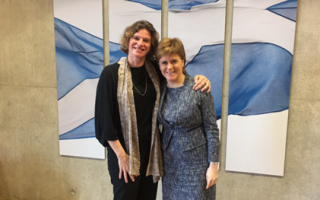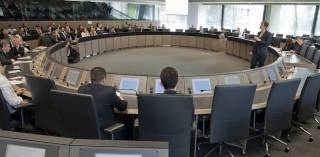Using patient, strategic finance for sustainable, investment-led growth.
Finance is key to economic growth, enabling new firms to emerge and existing firms to innovate and grow without relying on existing savings. But finance is not neutral; the type of finance available can affect both the investments made and the type of activity that occurs. The types of financial institutions and markets that exist have a material impact on activity in the real economy.
In many advanced economies, private sector banking and capital markets are too short termist or are funding existing financial or real estate assets rather than providing the patient capital needed to stimulate innovation and create sustainable, inclusive growth. This pillar of IIPP’s research involves theoretical, empirical and practical interventions to create a financial system fit for purpose.
We are working closely with state investment banks, central banks, financial regulators and forward-thinking private financial institutions to enable this, including advising on the creation of brand new public banks. A particular focus is how finance can better support the transition to a low carbon economy. Here we are examining how central banks can adjust their policy frameworks to enable a smooth transition and what blend of financial products and institutions best support innovation in the green energy sector.
Current research projects
 Central banks and climate change
Central banks and climate change

Central banks have potentially huge influence on the creation and allocation of capital in modern economies, given their power to regulate commercial banks and determine monetary policy. How should central banks address the challenge of climate change which poses threats to financial and price stability and also requires a major structural transition in financing towards low carbon sectors. IIPP is working with central banks, think tanks and academics across the world to try to answer these qeustions. This research is currently supported by Partners for a New Economy and The European Climate Foundation.
Public banks and patient finance
IIPP’s work on patient finance looks at how public banks are opening up new technological frontiers and economic opportunities around the world; how different design features of public banks affect their ability to provide long-term, patient finance; and where the opportunities lie for new forms of public finance to promote long-term investment and mission-orientated policy around the world.
 Scottish National Investment Bank
Scottish National Investment Bank

First Minister of Scotland Nicola Sturgeon announced plans to establish a new Scottish National Investment Bank to support the Scottish Government's vision for delivering smart and inclusive growth. The announcement was informed in part by advice from IIPP Director Professor Mariana Mazzucato, who has been part of the Scottish Government's Council of Economic Advisors since 2016.
 Distributed Global Financial Systems for Society
Distributed Global Financial Systems for Society

IIPP was a partner in the Distributed Global Financial Systems for Society (DOLFINS) project, led by the University of Zurich, and funded through the European Union's Horizon 2020 programme.
Research streams
Green economy for sustainable growth
IIPP research on the green economy and sustainable development focuses on the relationship between sources of finance and the direction of innovation. Read more
Patient finance, state investment banks and public finance
IIPP’s research focuses on new forms of public finance to promote long-term investment in the real economy and to finance mission-oriented policy. Read more
Working papers
IIPP WP 2021/05: A dynamic theory of public banks (and why it matters)
IIPP WP 2018-11: Credit where it’s due: A historical, theoretical and empirical review of credit guidance policies in the 20th century
Dirk Bezemer, Josh Ryan-Collins, Frank van Lerven, Lu Zhang
IIPP WP 2018-08: Bringing the helicopter to ground: A historical review of fiscal-monetary coordination to support economic growth in the 20th century
Josh Ryan-Collins, Frank van Lerven
IIPP WP 2018-04: Financing green growth
Mariana Mazzucato, Gregor Semieniuk
 Close
Close

